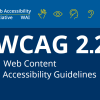
I really appreciate Zach putting this together as it helped me sort through some ideas I had in my own head. It also kinda makes me want to update a bunch of my old JavaScript components to remake them as lightweight HTML Web Components.

I really appreciate Zach putting this together as it helped me sort through some ideas I had in my own head. It also kinda makes me want to update a bunch of my old JavaScript components to remake them as lightweight HTML Web Components.

Somehow my students are allergic to semantics and shit. And they’re not alone. If you look at 99% of all websites in the wild, everybody who worked on them seems to be allergic to semantics and shit. On most websites heading levels are just random numbers, loosely based on font-size. Form fields have no labels. Links and buttons are divs. It’s really pretty bad. So it’s not just my students, the whole industry doesn’t understand semantics and shit.
I feel this… deeply. And I 100% agree with where Vasilis is coming from here. I do take a bit of umbrage with the idea that heading levels don’t matter—they really do—but his point about getting folks excited about the stuff they get for free by paying attention to their markup is something I’ve been pushing for years as well.
If you’re interested in a related deep dive into HTML’s lack of dependencies, check out this piece I wrote for Smashing Magazine. If you’d like to dive deeper into forms, I have this talk you might like.

Over a decade ago, I wrote up detailed instructions on how to enable users to share your content on social media without allowing them to be tracked by every social media site via cookies. In a few short weeks “third party” cookies will get the boot in Chromium-based browsers. If you’re still relying on third party share widgets on your site, your users may start seeing problems. Now is a good time to replace them with code that Just Works™. Here’s how…

Excellent lesser-known advice for how to keep your webpages keyboard-friendly. After reading it, I made a few changes to this site.

This is an excellent run-down of some key additions and changes in WCAG 2.2. Many thanks to Craig for putting it together!

I always learn a ton from Eric’s methodical approach to CSS. This one’s no different and is a wonderful introduction to anchor positioning. Love it!

It was a long time coming, but I finally had a chance to put the work I did on a widgets proposal for PWAs into practice on my own site. I’m pretty excited about it!

I love that folks in Microsoft are releasing the tools we use to build more accessible experiences.

While I really appreciate Microsoft standing behind the AI it’s deploying, I do wonder how this squares with the U.S. Copyright Office’s ruling that prompt-generated content isn’t copyrightable.

Excellent interview with Tolu Adegbite on her career and the importance of giving voice to other marginalized communities within the disability space.